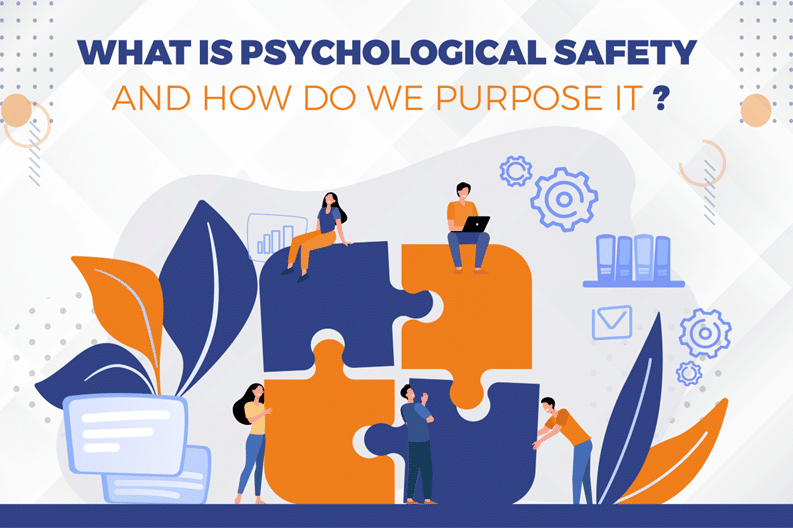Take a moment and think about the last time you had a meeting with your team members. Was everyone engaged and encouraged to share their ideas? When someone did speak up, was everyone listening or were they distracted by their phones? Were new ideas or questions met with interest and enthusiasm or was there a bit of laughing and a “that will never work” kind of attitude? As we go through our daily routine, we may not think about how the workplace environment is shaping the attitudes and perceptions of team members. But there’s an important component of workplace motivation and engagement that shouldn’t be ignored: psychological safety.
What exactly is psychological safety? It’s the belief that people feel safe in admitting they don’t know something or can disagree with an opinion without the risk of being thought less of, penalized, retaliated against or considered not a team player. It’s feeling comfortable taking risks and expressing work-related thoughts and feelings. Psychological safety plays a vital role in decision making, healthy interpersonal relationships, greater innovation and more effective execution within organizations.
The big question on leaders’ minds is, “How do I know if my team has psychological safety?” The answers to these 7 simple statements, developed by Amy Edmondston, Harvard Business School professor and author of The Fearless Organization, can give you a sense of the degree to which employees feel psychologically safe:
- If you make a mistake on this team, it is not held against you.
- Members of this team are able to bring up problems and tough issues.
- People on this team often accept others for being different.
- It is safe to take a risk on this team.
- It isn’t difficult to ask other members of this team for help.
- No one on this team would deliberately act in a way that undermines my efforts.
- Working with members of this team, my unique skills and talents are valued and utilized.
A lot of what goes into creating a psychologically safe environment are good management practices. This includes things like encouraging open communication and actively listening to employees, making sure team members feel supported and making it clear that their voice and ideas matter.
Here’s what psychological safety is not: It’s not about “being nice” or creating an environment where people have to feel comfortable all the time. Taking risks can make people feel like they’re out of their comfort zone. Mistakes happen and need to be pointed out in order for learning to take place. The key is that these risks and mistakes happen in a safe environment.
Psychological safety has become a hot topic in the workplace and for good reason. An environment where it’s lacking results in greater employee dissatisfaction, less productivity and innovation and, ultimately, more turnover. How would you rate the level of psychological safety within your organization? Do team members feel comfortable sharing their ideas, questions and concerns or is there room for improvement? That’s where Leah M Joppy and Associates can step in and help. We can look at your current practices and help you craft new and innovative ways to communicate, problem-solve and engage with team members.
Ready to learn more? Call us at 301-670-0051 or email us at leah@lmja.com to learn more.

